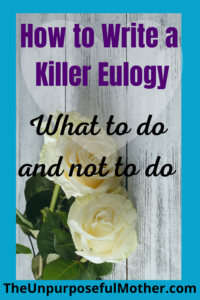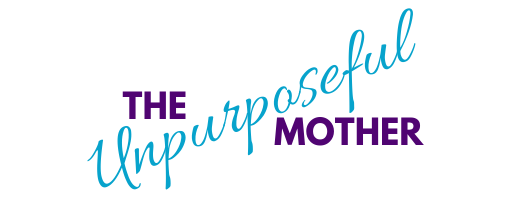I write a killer eulogy. As troubling as it is that I claim it as my superpower, it’s 100 % true. Within two years, I attended eight funerals. Sadly, it included the passing of both my parents. During this time, I learned what works and, more importantly, what doesn’t. Some would say I am a horrible person to critique someone at their lowest and saddest time. A time when they are putting all their feelings out there for family, friends, and the few creepy people at a funeral that no one ever knows. Nevertheless, this is good information to have.
Below are tips that will help you create a eulogy and leave the audience with the true essence of the loved one that passed.
Communicate with the Other Speakers
At a funeral for a family friend, multiple family members gave eulogies. From the brave college student grandchild to the eldest son, every one of them said the same thing. Granny made the best chocolate chip cookies ever. Yes, nothing shows more love than a home-baked cookie, but hearing it once would have done the trick. Some repetition is fine, and the reinforcement of a treasured memory is sweet. However, It’s imperative that every speaker talks to each other before the funeral. It is understandable that families and friends will be scattered and may not even know each other that well, but there needs to be communication at some point. When my father passed, his relatives spoke of his life before my mother and left the rest to me.
Do Not Read the Eulogy on Your Phone
Unless you are 12 years old, no one can read easily on the phone without squinting or moving an arm back and forth. It’s very distracting. Even if you can see the screen, you have to scroll, and you will invariably lose your place. Looking at the audience will never happen. It is necessary to connect with your audience. We have become attached to our devices. Once the phone comes out, the connection is with a piece of technology, not the people in the room. I have teenagers, so I know.
Another salient point is that the phone undercuts the solemness of the day. Pulling up some words on the phone sets a way too casual vibe.
Writing is my preferred method to compose a speech, but a typed-out, double-spaced, large-print paragraph form document is ideal for the actual reading.
Catch the Essence
I went to a funeral of a friend’s parent that I never had the good fortune to meet. I knew from her son that she was a great woman. However, leaving her memorial service, all I learned was that she was a stellar cancer patient.
The end of life is obviously, not the best of times. People at the service need to get a glimpse of who the person was during the part of life when they were vital and present. Of what was your mother most proud? What were your father’s favorite hobbies? Was your great uncle a joke teller? We all hope to go quickly, painless, and in peace. In reality, the most recent past may be filled with sickness, struggle, and heartache. Although super hard, go back to when times were good. The present is filled with loss. One great kindness would be to send out a sweet and loving memory.
Can You Really Do it?
It isn’t very gentle to say, but you cant stand up there and let the floodgates open. A few tears may be unavoidable, and a few extra pauses are ok. If you know that you are a crier, an actual sobbing, heaving, can’t catch- your- breath bawler, then this is not for you.
Embrace Humor
A funeral is not the time to stand up on the podium and crack a few one-liners or pull out the limericks. However, it is appropriate and welcomed to show a humorous side or share a joke even at the expense of the deceased. I love to quote a line that Dolly Parton recites in the movie Steel Magnolias: “Laughter through tears is my favorite emotion.”
Review Speech Writing 101
English grammar has never been my strongest attribute, but I will suggest a few tips.
Use Meaningful Quotes
My mother’s favorite movie was Now Voyager. At the end of the movie, Bette Davis recites a memorable quote that I chose to use at the end of her Eulogy.
“Don’t Let’s Ask For The Moon; We Have The Stars.”
My father would point to this psalm in the Rosh Hashanah prayer book every year at Temple.
“And remember that the companionship of time is but of short duration. It flies more quickly than the shades of evening. We are like a child that grasps in his hand a sunbeam. He opens his hand soon again but, to his amazement, finds it empty and the brightness gone.”
Somehow I innately knew I would use it in some form in my father’s eulogy. Instead of ending my father’s eulogy with the quote, I put it in the beginning. I ended with:
“Say not in grief he is no more, but live in thankfulness that he was.“
Don’t worry if you do not have a quote stored up in your head. There are quotes for any subject you can pull out of your head. Just search for quotes on the subject online. If you need help, here are some inspirational quotes to start your search.
Be Honest
There is nothing more uncomfortable than walking out of a memorial service wondering who in the world the Eulogy was about. Living or dead, we all have our faults. Now is not the time to air grievances or speak about the will. You may think this is obvious, but grief does wacky things to people. Speak from the heart, but if the heart is clouded, search a bit harder to find the goodness. If you hadn’t anything kind to say, then you would not be the speaker.
On the flip side, don’t make Aunt Betty a saint. Don’t tell your audience she graduated Cumma Summa Something from Harvard when she dropped out of Community college and joined the circus. Yea, bit extreme but point taken, right?
Tell Stories
Do not recite a Linked In biography. There is a good chance the clergy will do that for you. The best way to get a person’s true essence is to hear personal stories. If possible, try to find memories and anecdotes unique to your person. It is wonderful that your mother drove you to school every day, but let’s be honest, whose mother didn’t?
Start Scribbling
I prefer paper, but that’s fine if you want to sit down at the computer. Begin by free writing the best memories and stories that you can think of about your person. (loved one?) I find that once your start writing, the memories come quickly. Don’t worry about editing or grammar at this point. Just write everything wonderful and funny that comes to mind. Once you finish, walk away. When you come back, you can edit. Make sure you add periods. Run-on sentences are impossible to read. Once you edited it down to your best stories added a couple of quotes, you can type it up. I prefer big print. It will serve two purposes. It makes it easier to read, and it naturally shortens your speech. You cant walk up with a 15-page Eulogy.
Final thought
Ultimately your Eulogy will be perfect. The words are from your perspective, highlighting your love. These suggestions will give you the tools to ensure that your intent is received as intended and hopefully add a little brightness during a mournful time.
“Every man’s life ends the same way. It is only the details of how he lived and how he died that distinguish one man from another”
– Ernest Hemingway



7 Comments
Great tips Cindy. I’d like to read your parent’s eulogies.
These are some really awesome tips. Sorry to hear about you losing both your parents. This will become quite valuable for many people because very few of us would have this superpower for sure.
Thanks for the kind words.
These are great tips, even just for public speaking in general! Thanks for sharing!
Thank you!
This is such a useful post. We’ve suffered some loss in our family over the past few years and something I’ve noticed is this; we are woefully unprepared. For the grief, obviously, but also for the business of saying goodbye. I think if we could prepare better for end of life, the grief would be … well, if not easier, at least there’d be less to stress about.
Is it creepy to say that, as well as life skills, as adults we should have some end-of-life skills?
Thank you Helen and I wholeheartedly agree!